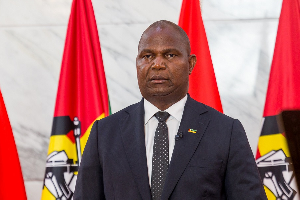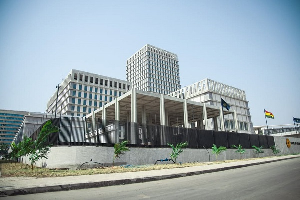It is the fervent prayer of The Ghanaian Times that plans by the National Petroleum Authority (NPA) to make Liquefied Petroleum Gas (LPG) more affordable and accessible to all Ghanaians will come to pass sooner than expected.
It is good news that the NPA has identified the fact of the ever-rising prices of LPG on the market as the cause leading many Ghanaians, particularly those in rural areas, to rely on the use of fuel wood such as charcoal.
The NPA believes that if it ensures LPG is always available and its prices are within the reach of the ordinary Ghanaian family, people can be dissuaded from using wood for fuel.
All stakeholders in this matter must make the necessary efforts, and urgently too, to see through the NPA plan because it has serendipitous benefits beyond its intended objectives.
The NPA reducing LPG prices was crucial for the success of the Cylinder Recirculation Model (CRM), which basically aims to make LPG more accessible and affordable.
The CRM, among other actions, would make sure LPG is on the doorstep of consumers.
To do this, the CRM would engage some unemployed youth and involve them in the distribution and exchange of LPG cylinders, thereby creating employment opportunities and reducing the country’s unemployment burden.
It is clear that the NPA means business; to facilitate the CRM, it has supervised the establishment of four bottling plants and issued licenses for a number of cylinder exchange points and other relevant infrastructure.
This move is sort of meant to bypass the frightening costs Petroleum Distribution Companies (PDC) and Oil Marketing Companies (OMC) have to incur to obtain licenses to distribute LPG, a situation that has become a barrier to many aspiring LPG entrepreneurs.
Just imagine that to obtain a PDC license, one has to pay an entrance fee of US$ 750,000 and own seven filling stations, and for an OMC license, one needs to own three filling stations and four state-of-the-art filling stations, with each station costing not less than GH¢5 million to set up.
The serendipitous nature of the whole CRM matter begins with its goal that by the year 2030, at least 50 percent of Ghanaian households should be using LPG as their primary cooking method.
This target is in line with the UN’s Sustainable Development Goal (SDG) 7, as it calls for ensuring universal access to affordable, reliable, and sustainable energy.
SDG 7.1.2, in particular, highlights access to clean cooking solutions.
It is on record that in Sub-Saharan Africa, including Ghana, the population growth is higher than the growth in the number of people with access to clean cooking, leaving more than three-quarters of the population without access to clean fuels and technologies for cooking.
It is public knowledge that the acquisition of wood fuel in developing countries often causes forest degradation, and its use by rural households results in respiratory diseases and eye ailments, where the ensuing smoke is intense.
In the face of this, cleaner cooking options are obviously needed to solve these problems, and The Ghanaian Times thinks the CRM and all the related good plans of the NPA come in handy for that unavoidable purpose.
Editorial News of Wednesday, 31 July 2024
Source: ghanaiantimes.com.gh













